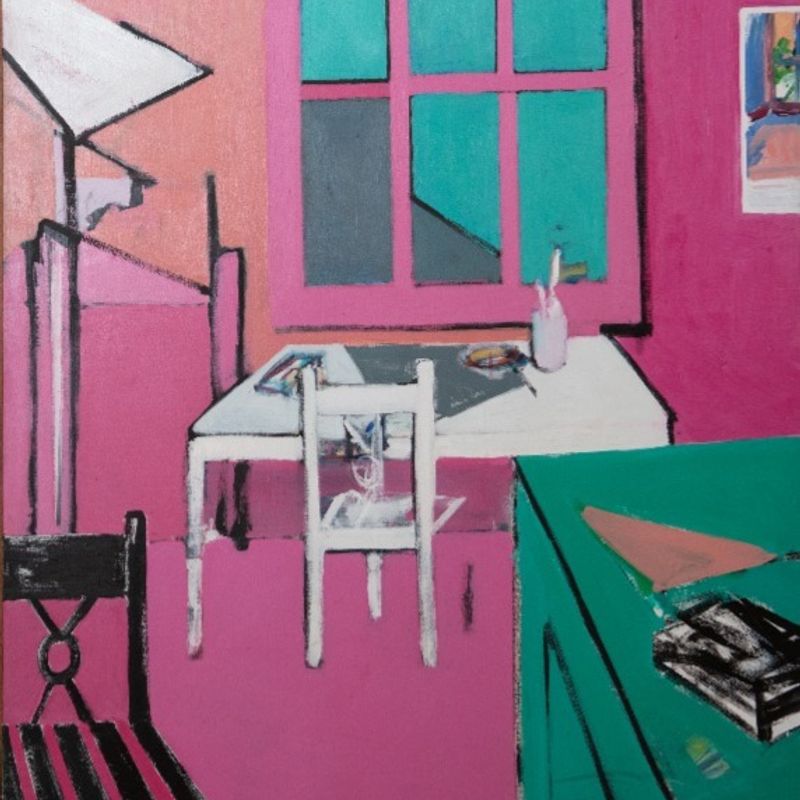The World
by Bailey Cohen-VeraI thought 50 years ago that I could make a big difference in the world. What I know now is that I will not allow the world to make a big difference in me.
-Nikki Giovanni
“Beyond [medicine] and beneath it are all the other systems, family race work culture gender money education, and beyond those is a system that appears to include all the other systems, the system so total and overwhelming that we often mistake it for the world.”
-Anne Boyer
The world had been sad since Tuesday.
-Gabriel García Márquez
I was in love with the world. The world broke up with me three times, and I took him back twice. We met at a café the other day. How are you going to break my heart today, world? Well, it begins with where your coffee comes from—look again, it’s all blood. Here’s some creamer. I prefer honey. That’s strange, isn’t it? Not when you spend enough time thinking about bees. Good point said the world, then he slowly began to douse himself in honey. I said, My world!
You’re dousing yourself in honey! Good point, said the world; then he began to pour teawater on his sticky arms. I said, My world! Don’t hurt yourself! The world smiled. He said, I am on fire, and the honey became fire. To this day I still consider it his most impressive feat. I even felt bad for trying to stop him. Doesn’t boiling water still do its job; doesn’t it still put out the flames? The way the world spoke made everything seem like an interesting question. At first the answer seemed obvious enough. But that was the last time I would ever see the world; after that we finally went our separate ways. A week passed and then so did a month. I forgot what the world looked like when he moved. Every private memory became a stilled image. I missed the world. He had many gorgeous eyes and one good heart. I would go to friends for guidance. You miss the happiness you found within the world; you don’t miss who the world is now. This was a common thing they used to say. Their platitudes wore on me. I carried their weight. I attempted to apply them while walking to the bus or to the grocery store. Where else could I go? I became depressed. I became
worldless. I entered the necessary time cycles: Gratitude. Bitterness. Physical expressions of grief. My foot began to splatter. I was unable to calm it. I tapped everything. Incessantly. I even began to move according to my foot’s own persistent restlessness. So, I ran away from home. I lived by the moon. What was home? That was now something to consider. I slept whenever my legs gave out. I reimagined the grassy field as a blank space—no, blanker. Are you thinking of lines? Is there something about a border that seems necessary to you? I’m
sorry. I don’t mean to take an accusatory tone. I am a journalist after all. Let us begin again, this time with facts. I was selected to write this piece because I knew him. Any more I won’t allow myself to say. The poet Richard Siken says, History is a little man in a brown suit trying to define a room he is outside of. Well, history and the world would have gotten along. The world was a talented orator. He gave several convincing speeches. He altered the general state of things at least twice. I myself don’t know where I’d be without him. Of course, this was before he oriented himself among a long history of tragic men who took their own lives, a fact which we know now and has become inseparable from his legacy. How could he do this to us? We have never been more noticeably alone. History says we forgive the executioner, announces Solmaz Sharif. Sources have begun to divulge crucial information regarding the world’s final days—he was seen beside a regular tree, gnawing at his own tail. He said that one afternoon had changed him. So, “executioner” became such a particular title. Are we
supposed to understand this and move forward from it? In which direction are we facing? A snake devouring itself earns a new name. It is Thursday. It is expected to rain for the first time since last week. As a townspeople, we will need to identify the symbolism of the weather and what we make of the murky concept of “forgiveness.” I’m suspicious of that pronoun: “we.” I’m not fond of history. He doesn’t speak for me. So, the wronged parties must be more effectively recognized. An appropriate relationship must be established between the severity of betrayal and its distance. From there on, some of us will continue. Others will remain in this strange present already doomed to be past. Those who cross it will have to unlearn previous understandings of leadership. All agree that the day will come again when a choice will have to be made between what must be forgotten and what must be made into a small part of us. Unfortunately, days no longer have meaning in this town. This town that was once the world.

